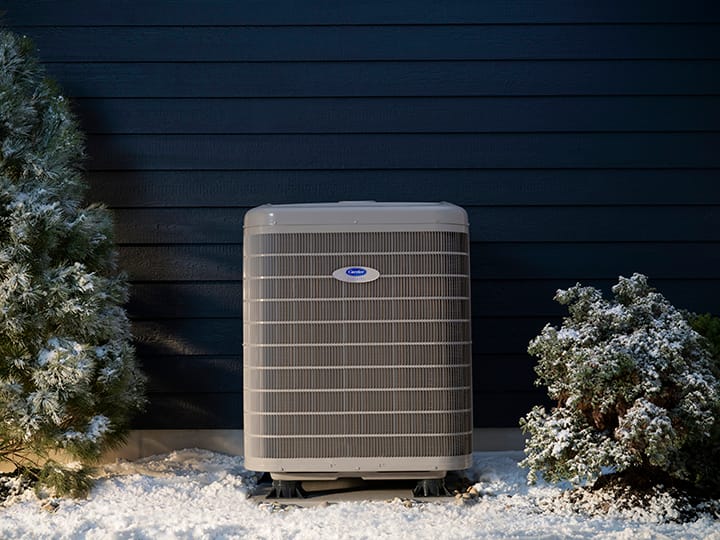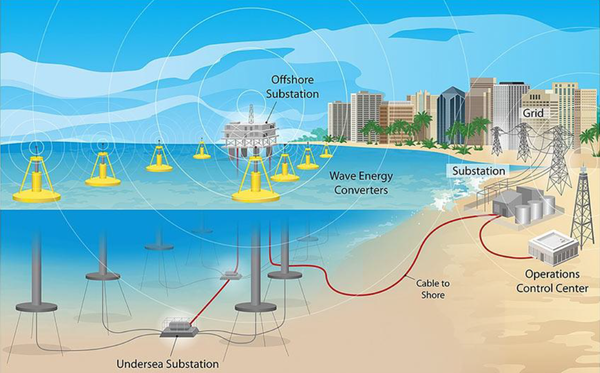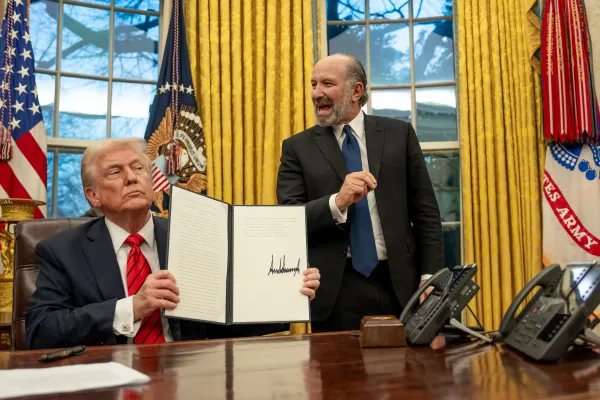Forget what you’ve heard, heat pumps can thrive in the cold
Under a challenge convened by the US Department of Energy, manufacturers put residential heat pumps to the test in extreme cold – they passed.

Report on heat pumps and it won’t take long to hear: “Heat pumps just don’t work in the cold.”
The reality is that – as with any home appliance – you need to select the right product for the job. If you live in Maine or Alaska, you likely need a heat pump designed for cold climates.
The good news for these households is that the US Department of Energy (DOE) just made it even easier to find a heat pump that will keep your home cozy on all but the most frigid winter day.
Last month, DOE announced that eight manufacturers had completed field testing of products as part of the department’s Residential Cold Climate Heat Pump Challenge. In homes, the units “reliably provided heat with little assistance from auxiliary elements, even during the coldest winter periods,” according to a department press release.
And just in time for winter, heat pumps tested under the challenge are already being stocked in stores.
The Challenge
DOE launched the Challenge in 2021 with the goal of bringing centrally ducted air-source heat pumps to market that "would be capable of operating at 5˚F (-15˚C) or lower with energy performance well beyond current best-in-class products.”
Electric heat pumps are at least two to three times more energy efficient than either electric resistance heaters or fossil fuel-fired furnaces or boilers. But the performance of conventional air-source heat pumps declines as temperatures plunge, which explains both the stubborn conviction that heat pumps won’t work in extreme cold and DOE’s determination to supply the market with products that will put those concerns to rest.
The eight participating manufacturers – Bosch, Carrier, Daikin, Johnson Controls, Lennox, Midea, Rheem, and Trane – tested heat pump prototypes at Oak Ridge National Laboratory and other facilities in 2022 and 2023, with some units operating efficiently in temperatures as low as -15˚F (-26˚C). The heat pumps were then tested in homes in 10 US states and two Canadian provinces, with data collected for a full year in partnership with DOE’s Pacific Northwest National Laboratory (PNNL).
According to a report on key findings from the field testing prepared by a team led by PNNL, Challenge prototypes both met the program’s performance metrics and satisfied occupants who tested the units in their homes.
“In the field, the CCHPs were observed to be reliable and were able to provide equal or better comfort to the homes compared to the previous furnace systems. Initial evaluations of the performance and efficiency of the units indicate promising results with all units capable of providing heat with little assistance from auxiliary elements even during the coldest weather,” the PNNL team concluded.
New models hitting the market
Most of the Challenge manufacturers had planned to make their prototype units commercially available by late 2024 or early 2025. Some models are already hitting the market.
Electrek reported last month that Bosch was the first manufacturer to bring to market a cold-climate heat pump tested under the Challenge.
Lennox is manufacturing heat pumps tested under the Challenge and plans to start selling the units before the end of this year, a spokesperson* at DOE’s Office of Energy Efficiency and Renewable Energy confirmed in an email.
Carrier separately confirmed to me that its Infinity Variable-Speed Ultimate Cold Climate Heat Pump is available for purchase.
“Carrier started manufacturing in September and has produced over 30 units since. We also have units available in our Indianapolis Technical Training Center and are preparing our dealers for best installation practices,” Michael Carter, Carrier’s associate director for residential outdoor product management, wrote in an email.
DOE has not yet requested an update from all participating manufacturers on their commercialization efforts but may do so in the coming months, according to the department spokesperson.
Defense Production Act
Cold-climate heat pumps are getting a boost from the Inflation Reduction Act (IRA), too.
Households can claim up to a $2,000 tax credit per year for qualified heat pumps under the IRA.
The Biden administration and congressional Democrats also inserted language into the IRA that authorized up to $500 million in funding to support domestic manufacturing of critical clean energy technologies such as heat pumps, solar panels, and transformers under the Defense Production Act (DPA). The White House determined that DOE could use $250 million of the funding, with a focus on heat pump manufacturing and deployment.
Some of the awards made under the DPA will support cold-climate heat pump manufacturing, a spokesperson with DOE's Office of Manufacturing and Energy Supply Chains confirmed in an email.
“Two of the eight Residential Cold Climate Heat Pump Challenge participants, Johnson Controls and Daikin, received awards and will be manufacturing residential heat pumps that meet the CCHP Challenge. Additionally, another DPA heat pump award recipient, Ice Air, will be manufacturing residential and commercial cold-climate heat pumps.”
*A shout-out to DOE’s Maria Payan for going above and beyond to track down manufacturer cold-climate heat pump commercialization updates for me. Thank you, Maria!
Like what you are reading? Quitting Carbon is a reader-supported publication. To support my work, please consider becoming a paid subscriber or making a one-time donation. Thank you to all who have already subscribed!




